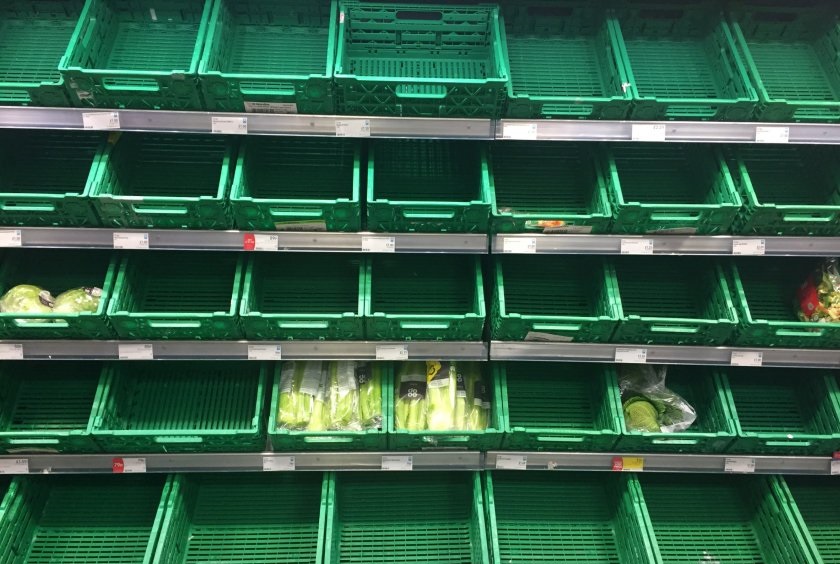
Food inflation reached a new high of 18.2% this past month amid a shortage of fresh fruit and vegetables on supermarket shelves.
The price of basics such vegetables, eggs and dairy products soared to levels not seen in 45 years, the Office for National Statistics (ONS) said.
Food inflation accelerated strongly in February to a new record, up from 16.8% in January, the fastest rate year-on-year since 1977.
Drilling down into where the price rises are occurring – a large portion are being driven by food products containing grains, eggs, oil and certain proteins.
Bread prices are up 20.8%, pasta products and couscous up 25.3%, eggs up 32.5%, margarine and fats up 30.4% and pork up 22.4%.
And in the year to February 2022, prices for vegetables have surged 18%, the highest rate since February 2009, the ONS explained.
"The largest upward effect came from vegetables, where prices rose in the month to February 2023 by more than a year earlier," it added.
"There have been media reports of shortages of salad produce and other vegetables, reportedly because of bad weather in southern Europe and Africa.
"The impact of higher electricity prices on produce grown out of season in greenhouses in the UK and northern Europe."
Earlier this month, the UK's largest retailers imposed national purchasing restrictions on fruit and vegetables due to extreme weather hitting harvests abroad, as well as high energy prices.
Asda, Morrisons, Aldi and Tesco had placed purchasing limits on items such as tomatoes, peppers and cucumbers.
The cost of energy, animal feed and tools to grow food today are at historic highs, with inflation in agriculture remaining at nearly 19%
NFU President Minette Batters told the union's recent annual conference “the clock is ticking” and that “time is almost up for this government to start walking the talk”.
"It’s ticking for those farmers and growers facing costs of production higher than the returns they get for their produce," she warned.
"It’s ticking for the country, as inflation remains stubbornly high, and the affordability and availability of food come under strain. It’s ticking for our planet, as climate change necessitates urgent, concerted action to reduce emissions and protect our environment.
"And it’s ticking for government – to start putting meaningful, tangible and effective meat on the bones of the commitments it has made."
